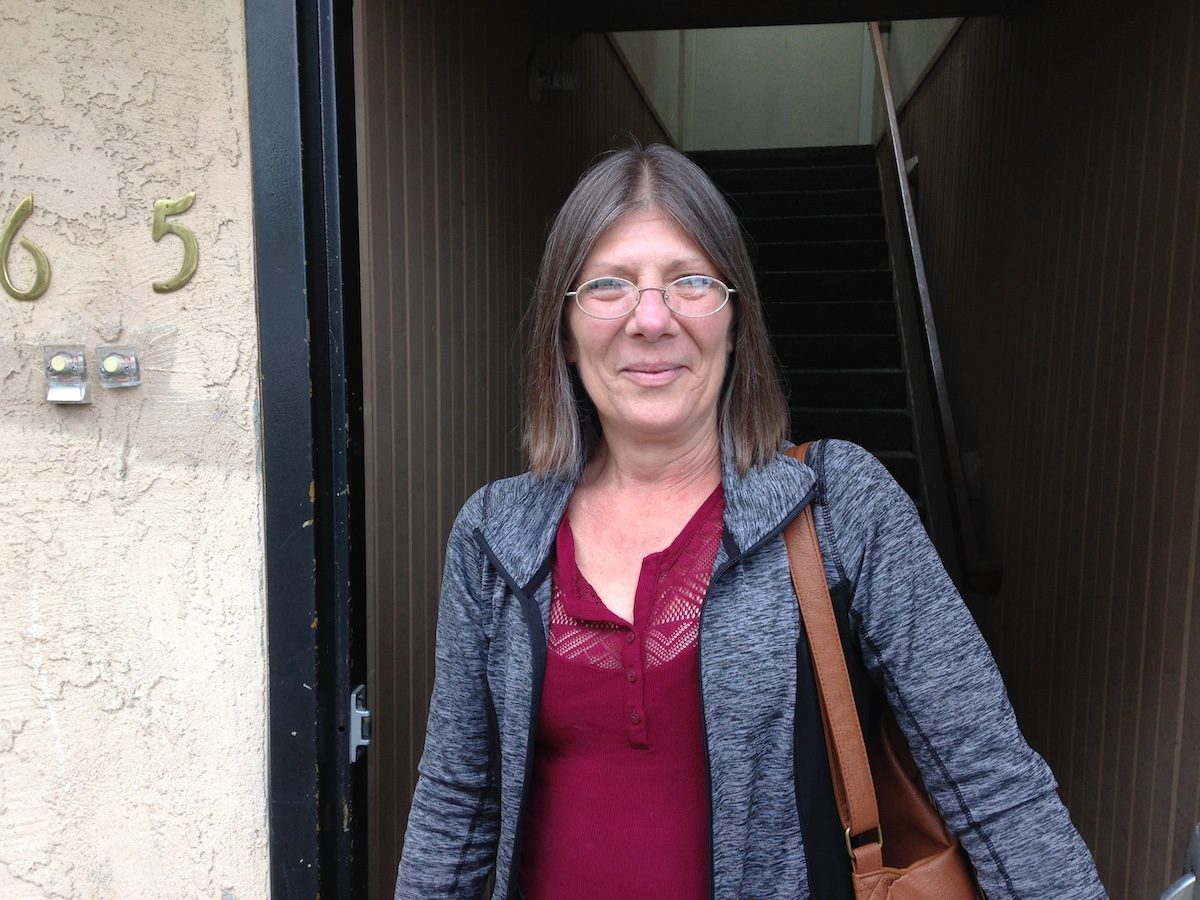Written by Denise Miller, Firesteel Advocacy Manager
Six years ago, Cherie Moore was featured on the front page of the Seattle Times. A large photo shows Cherie in the front seat of an old Ford truck, her hand over her mouth, worry in her eyes. Her teenage son, Cody, is in the passenger seat, staring straight ahead. Everything they own is in the vehicle, their only shelter.
The headline above the image reads: “Invisible Families: The Homeless You Don’t See.”
At the time of the photo, Cherie and Cody had been living in their truck for months, washing up in retail stores, and making daily calls to shelters looking for help. Cherie worked as a caregiver, but her hours were sometimes cut without notice and the income wasn’t enough to consistently cover rent.
The story, reported over months, shone a light on a family that had fallen through the cracks.
This summer, Cherie told me that the news story had helped her in a couple of ways. Spending time with the journalists made her and Cody feel “less alone.” And she believes the media attention was the reason they finally got help. They connected with a Rapid Re-Housing program and moved into an apartment in Kent.
Unfortunately, their story of housing instability didn’t end there. They only stayed in the Kent apartment for a year.
“The place was horrible,” Cherie said. “The floor was sinking in, and there was mold.”
After Cherie complained, the landlord “gave me the boot,” she said.
Mother and son crashed with a friend for a while, and then ended up back in their truck for about a year.
“It was so cold in winter. A food bank gave us a sleeping bag, we had numerous blankets. And we just huddled. We had no money to run the heat. Gas was $4 a gallon,” she said.
Then their truck quit running altogether.
Desperate, Cherie connected with a man she’d met in an online chat room, who picked her and Cody up in Renton and drove them back to his home in Lake Stevens. They stayed in an extra room at the man’s house. Within two months, Cherie had a full-time job at a big box retail store and began renting a co-worker’s basement. Eventually Cherie and Cody moved into their one-bedroom apartment in Marysville, where they’ve now lived for over a year and a half.
“Having a home — I love it, but it is not taken for granted. I never know from day to day if it will go away,” Cherie said.
Cherie’s income, combined with Cody’s wages for part-time work at another retailer, was barely covering their $935 rent and other essentials.
“Cody pays half of rent, plus the internet bill. I pay cell phone and power bills. Any leftover money goes to toiletries, then food. If there’s not enough money for food, then we go to the Marysville food bank,” Cherie said.
They were already living on the edge when Cherie got hurt last winter. Pushing an overloaded fruit pallet at work, she injured her left foot.
Doctors diagnosed her with Complex Regional Pain Syndrome, a chronic condition connected to her nervous system. When I met Cherie in August, I drove her to a physical therapy appointment in Everett. She stepped gingerly, and winced with pain.
“It hurts constantly, and it’s worse when I wear shoes,” she told me.
Through the summer, she continued working full-time for the same company as a cashier, a position that was less physically demanding than her previous work. Still, it was exhausting, and she was functioning on only two or three hours of sleep each night as the pain kept her awake. By September, doctors wouldn’t clear her to work at all.
“Cashiering is not a light-duty job,” she told me.
Once again, Cherie is on the brink of homelessness. Once again, she is sharing her story in hopes of bringing attention to an issue. This time, she wants to encourage people around Washington state to vote for Initiative 1433, which would raise the statewide minimum wage to $13.50 an hour.
Cherie has worked throughout her life up until this medical crisis; she has even described herself as a workaholic. But her income never allowed her to get ahead.
“I’ve always been on edge because of not making enough money,” she said.
Cherie’s retail job pays $11.42 an hour. A $2 boost “would be wonderful,” she told me.
Living on $13.50 an hour can be difficult in some parts of our state, but this increase in the minimum wage is a step in the right direction for workers who are struggling to get by. In addition to boosting wages, Initiative 1433 ensures that workers can earn paid sick and safe leave.
My ballot recently came in the mail, and I’m voting YES on Initiative 1433. I hope you will, too, for Cherie and so many other workers who are trying to keep a roof over their heads.
